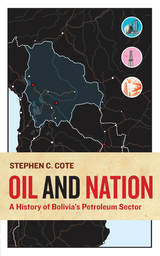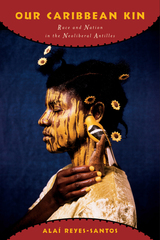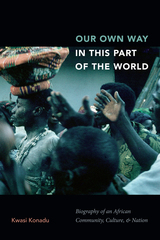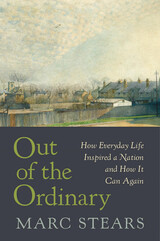7 start with O start with O

The book advances chronologically from Bolivia’s earliest petroleum pioneers in the nineteenth century until the present, inserting oil into historical debates about Bolivian ethnic, racial, and environmental issues, and within development strategies by different administrations. While Bolivia is best known for its tin mining, Oil and Nation makes the case that nationalist reformers viewed hydrocarbons and the state oil company as a way to modernize the country away from the tin monoculture and its powerful backers and toward an oil-powered future.


Original Subjects explores the interweaving of the child-hero and the fortunes of a nation as these are portrayed in a wide selection of novels and national narratives in the French and English traditions. Ala Alryyes examines how these works deploy similar metaphors and signifying narratives in which a homeless child is central.
Taking up such disparate writers and novelists as Locke, Rousseau, Wollstonecraft, Defoe, Richardson, Diderot, Scott, Stendhal, Balzac, and Disraeli, as well as Homer, St. Augustine, and Hannah Arendt, this book argues that the generational parent–child dynamic is key to understanding the structure of novels, the theory of the state, and the events of history.

The Chicanos, the U.S./Mexico borderland polyglots whose sense of history, nationality, and race is as mixed as their language, are the book's prime example. But the authors recognize that border zones, like diasporas and post-colonial relations, occur globally, and their discussion of hybrid or mestizo identities ranges from the United States to the Caribbean to South Asia to Ireland. Drawing on personal experience, readings of poetry and fiction, and cultural theory, the authors detail the politics of being human through the mediation of language. What does "shadow" mean to the Native American Indian, or diaspora to the East Indian immigrant? How does British colonialism yet affect Irish and Indian nationalist literary production? Why is the split between Eastern and Western European language use necessarily schizophrenic? So much of our sense of difference today is constructed as we speak, and An Other Tongue speaks with eloquence to this phenomenon and will be of great interest to those concerned with the discourse of post-colonial studies, critical theory, and the remapping of world literature.
Contributors. Norma Alarcón, Alfred Arteaga, Juan Bruce-Novoa, Cordelia Chávez Candelaria, Michael G. Cooke, Edmundo Desnoes, Eugene C. Eoyang, David Lloyd, Lydie Moudileno, Jean-Luc Nancy, Tejaswini Niranjana, Ada Savin, Gayatri Chakravorty Spivak, Michael Smith, Tzvetan Todorov, Luis A. Torres, Gerald Vizenor

Our Caribbean Kin considers three key moments in the region’s history: the nineteenth century, when the antillanismo movement sought to throw off the yoke of colonial occupation; the 1930s, at the height of the region’s struggles with US imperialism; and the past thirty years, as neoliberal economic and social policies have encroached upon the islands. At each moment, the book demonstrates, specific tropes of brotherhood, marriage, and lineage have been mobilized to construct political kinship among Antilleans, while racist and xenophobic discourses have made it difficult for them to imagine themselves as part of one big family.


From a major British political thinker and activist, a passionate case that both the left and right have lost their faith in ordinary people and must learn to find it again.
This is an age of polarization. It’s us vs. them. The battle lines are clear, and compromise is surrender.
As Out of the Ordinary reminds us, we have been here before. From the 1920s to the 1950s, in a world transformed by revolution and war, extreme ideologies of left and right fueled utopian hopes and dystopian fears. In response, Marc Stears writes, a group of British writers, artists, photographers, and filmmakers showed a way out. These men and women, including J. B. Priestley, George Orwell, Barbara Jones, Dylan Thomas, Laurie Lee, and Bill Brandt, had no formal connection to one another. But they each worked to forge a politics that resisted the empty idealisms and totalizing abstractions of their time. Instead they were convinced that people going about their daily lives possess all the insight, virtue, and determination required to build a good society. In poems, novels, essays, films, paintings, and photographs, they gave witness to everyday people’s ability to overcome the supposedly insoluble contradictions between tradition and progress, patriotism and diversity, rights and duties, nationalism and internationalism, conservatism and radicalism. It was this humble vision that animated the great Festival of Britain in 1951 and put everyday citizens at the heart of a new vision of national regeneration.
A leading political theorist and a veteran of British politics, Stears writes with unusual passion and clarity about the achievements of these apostles of the ordinary. They helped Britain through an age of crisis. Their ideas might do so again, in the United Kingdom and beyond.
READERS
Browse our collection.
PUBLISHERS
See BiblioVault's publisher services.
STUDENT SERVICES
Files for college accessibility offices.
UChicago Accessibility Resources
home | accessibility | search | about | contact us
BiblioVault ® 2001 - 2024
The University of Chicago Press









